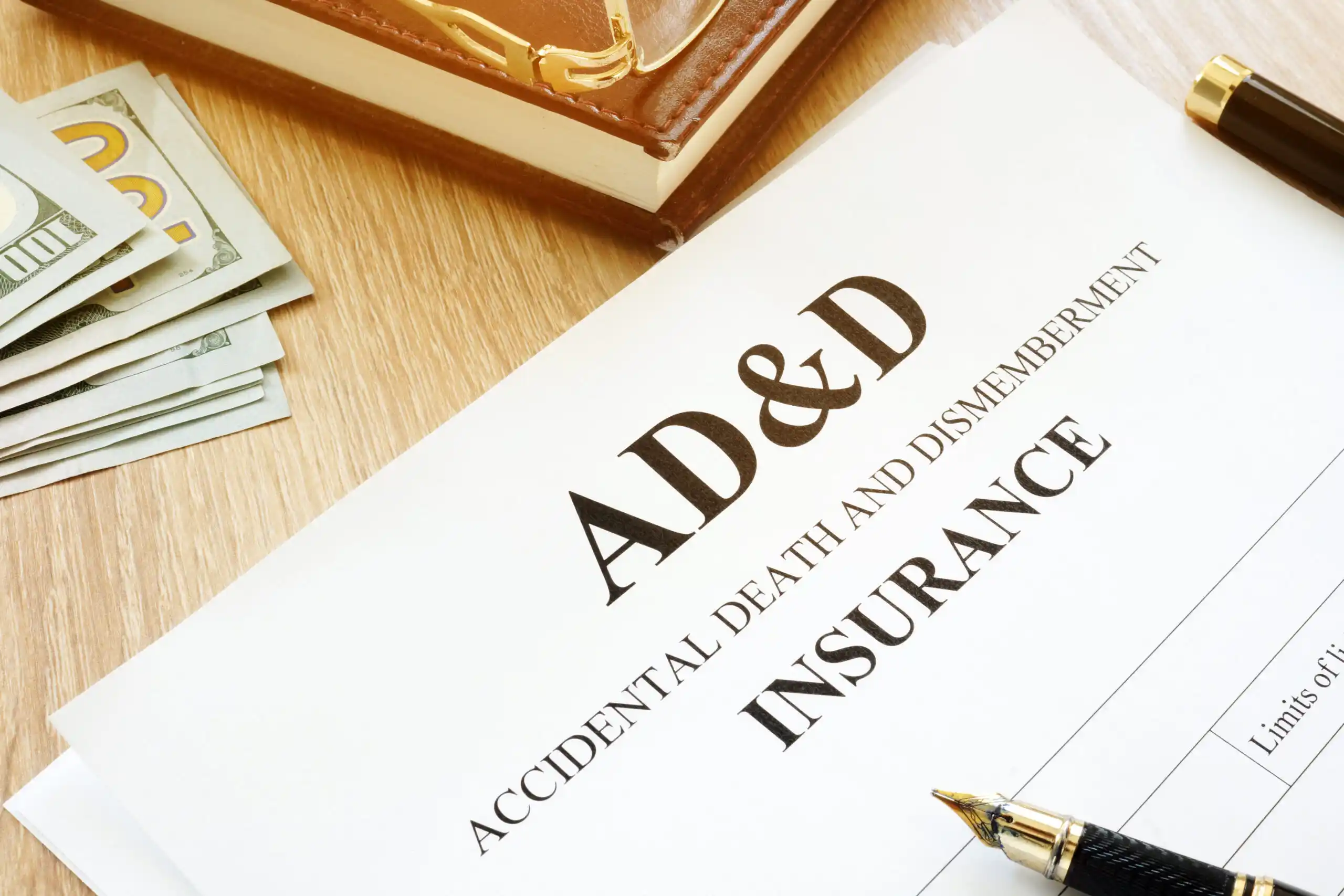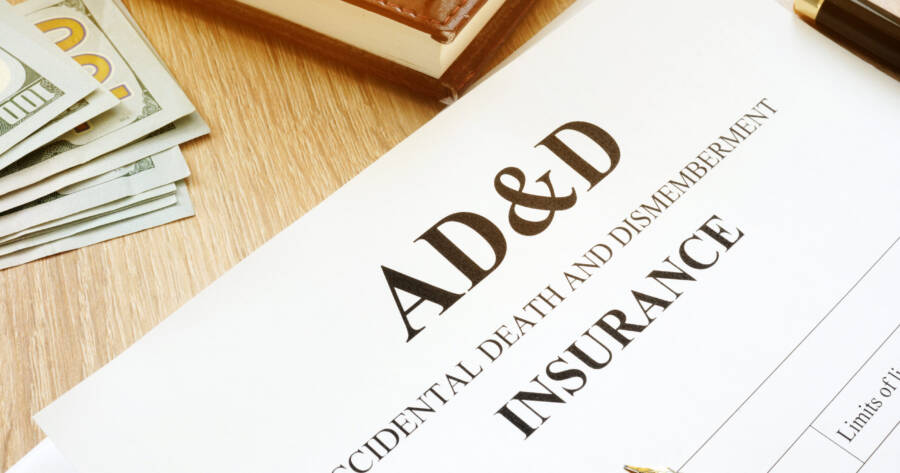This is a conversation with no easy starting point. If you didn’t already know, AD&D insurance is a bit morbid. It stands for “accidental death and dismemberment,” something we hope never happens to you or your loved ones.
This type of insurance is usually a supplement to an existing and more comprehensive life insurance policy. However, it’s specifically designed to cover rare and traumatic events resulting in the death or maiming of the policyholder. Unlike term life insurance, AD&D insurance will also cover the loss of limbs, significant paralysis, or loss of vision resulting from a serious accident.
It’s tragic, but horrible and unexpected accidents can happen to anyone. Discussing (and planning for) these uncomfortable topics can sometimes feel unlucky or depressing. But if you have people who depend on you, then life insurance of all kinds can provide a sense of comfort. Funeral costs, therapy for survivors, college tuition, debt, and other kinds of expenses will continue for loved ones even if you’re incapacitated.
The idea of leaving your family to shoulder additional burdens while they grieve isn’t something any of us want to think about. As uncomfortable as it can be to think about, it’s important to know if AD&D insurance is a part of your broader life insurance policy. If it’s not, you may want to explore the cost and benefits of adding it.
Unlike standard life insurance, AD&D insurance cover significant and permanent loss of body parts, even if the injury does not result in death. That makes it a valuable asset if you experience a serious accident that leaves you alive, but unable to earn an income.
Exclusions to Know About
Any time you buy insurance (or an add-on to your existing insurance), it’s important to read the fine print. You need to know exactly what it does and does not cover. AD&D insurance is strictly for accidents that are entirely out of the policyholder’s control, such as traffic accidents or homicide. Self-inflicted injuries are not covered, nor are incidences where death or dismemberment occurs during criminal activity. Work-related accidents might be covered, but it depends on how things are worded. Your employer may have their own workplace insurance that covers a workplace accident.
You Probably Won’t Need It (If Your Life Insurance is Good)
Life insurance policies will provide for your beneficiaries in the event of most kinds of death, mostly rendering AD&D insurance unnecessary. It’s probably also included in employer life insurance packages for no additional cost. If you don’t have to pay extra for it (or it’s a very cheap extra), you should absolutely select it.
While it’s usually cheaper, AD&D insurance should never be treated as a replacement for term life insurance. It’s designed to cover events that are especially sudden, traumatic, and rare. However, if there are gaps in your life insurance coverage, it may be necessary to purchase AD&D insurance as an add-on.
One thing to be aware of with AD&D insurance is that it’s possible to receive a payout from both a term life insurance policy and an AD&D policy. This means that beneficiaries could receive more than they normally would in the event of a traumatic, accidental death.
Dismemberment
The big thing that sets AD&D insurance apart is that it’s a form of life insurance that you may end up collecting while you are still alive. In the tragic and painful circumstance where the policyholder is maimed or loses a bodily function, AD&D insurance will kick in. The payout can help with recovery costs. It will also financially support you and your family during the recovery and rehabilitation process. Since these types of accidents typically result in extreme medical costs and lost wages, you can easily see how AD&D insurance is useful.
Keep in mind that it will not pay out the full policy in cases where the holder is dismembered unless the damage is severe. If you read the fine print of some of these policies, it’s almost comically macabre. For example, losing a pinky in a factory accident might not pay out at all. However, losing a thumb might offer $10,000, since it’s apparently a more important finger.
Likelihood of Accidental Death
Accidents are the third leading cause of death in the United States. Additionally, disabling workplace injuries cost almost $53 billion annually. It can feel like it strikes truly at random, no matter how careful you are. That is what AD&D is designed to cover. Since the circumstances you would need AD&D insurance in are — by definition — unpredictable, it can sometimes be hard to justify it as an additional cost.
Since regular life insurance covers all the causes of death covered by AD&D insurance, it can be an unnecessary extra. If AD&D costs more than you can afford, you should always stick with regular life insurance. However, if it’s free (or cheap), it can mean extra support for the aftermath of a truly horrible event. Consider your own circumstances. Do you work in a boring office or a busy factory? Is there heavy machinery that could be dangerous? Do you spend a lot of time driving for your job, increasing the chances of a car accident? You might not need AD&D insurance, but some people will want it more than others.
The Bottom Line
AD&D insurance is not necessary if you have another life insurance policy. It should not be treated as a replacement for life insurance. As careful and as safe as we try to be, it’s still important to plan for anything that may happen. Yes, even if thinking about it makes you uncomfortable. AD&D functions as a little extra piece of mind. If you can afford it, then it can be worth the extra security.
 Shutterstock
Shutterstock







